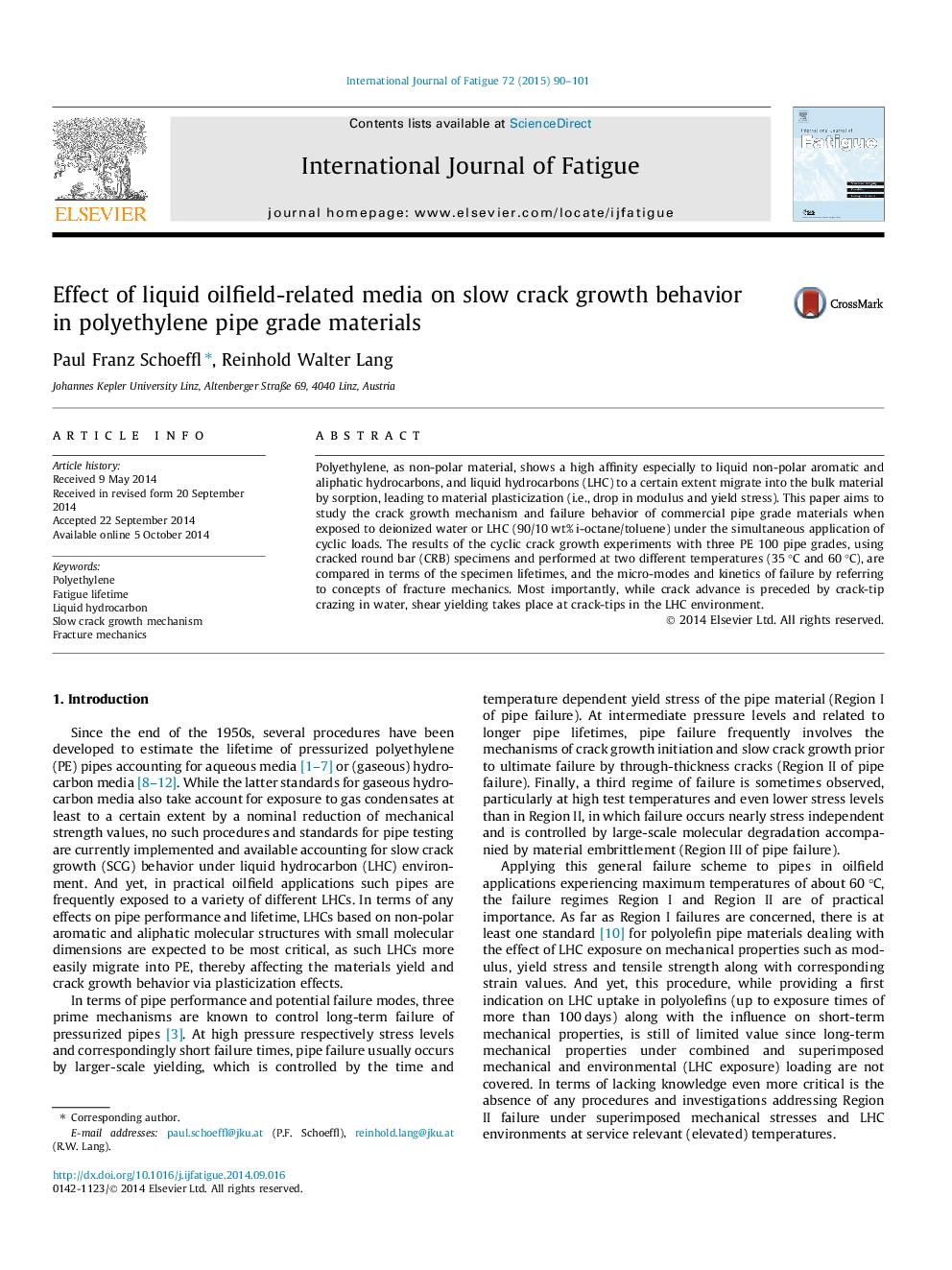| Article ID | Journal | Published Year | Pages | File Type |
|---|---|---|---|---|
| 776783 | International Journal of Fatigue | 2015 | 12 Pages |
•Investigation of slow crack growth of PE in liquid hydrocarbons and water.•Superior fatigue life in liquid hydrocarbons at low stress intensity factor levels.•Significantly blunted crack crack-tip in liquid hydrocarbons.•Cyclic shear yielding in liquid hydrocarbons vs. crack-tip crazing in water.•Discussion of results in context of linear elastic fracture mechanics.
Polyethylene, as non-polar material, shows a high affinity especially to liquid non-polar aromatic and aliphatic hydrocarbons, and liquid hydrocarbons (LHC) to a certain extent migrate into the bulk material by sorption, leading to material plasticization (i.e., drop in modulus and yield stress). This paper aims to study the crack growth mechanism and failure behavior of commercial pipe grade materials when exposed to deionized water or LHC (90/10 wt% i-octane/toluene) under the simultaneous application of cyclic loads. The results of the cyclic crack growth experiments with three PE 100 pipe grades, using cracked round bar (CRB) specimens and performed at two different temperatures (35 °C and 60 °C), are compared in terms of the specimen lifetimes, and the micro-modes and kinetics of failure by referring to concepts of fracture mechanics. Most importantly, while crack advance is preceded by crack-tip crazing in water, shear yielding takes place at crack-tips in the LHC environment.
Graphical abstractFigure optionsDownload full-size imageDownload as PowerPoint slide
